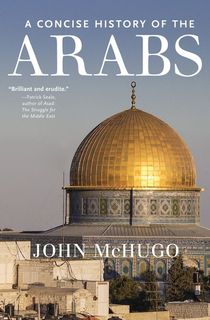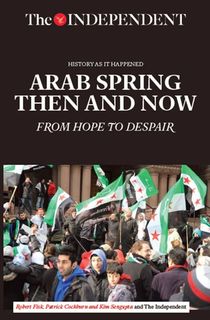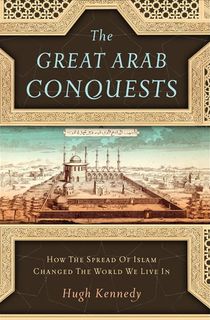For thousands of years, the lands east of the Mediterranean Sea have collectively served as a hotbed of social and scientific developments, as well as the battleground for numerous disputes. The Middle East, as we now refer to one of the regions situated east of Europe, is home to the remnants of some of the oldest-known civilizations in the world.
The Middle East officially encompasses most of Western Asia, Egypt, and Turkey. It spans 18 countries total, 13 of which belong to the Arab world. This vast area has been home to a wide gamut of tribes and empires, dating back thousands of years. It was here that early nomadic peoples ceased roving across the African continent and settled in the Nile River Valley, where one of the earliest civilizations flourished. These are the same lands which, when Jerusalem was sacked in 586 B.C.E., were traversed by Jewish exiles making their way to Babylon, located in present-day Iraq.
For the Abrahamic religions (Judaism, Christianity, and Islam), here resides the Holy Land, over which numerous wars have been fought. In the 21st century, social unrest stemming from a host of issues, such as religious extremism, government corruption, and civil rights, persists in locales like Syria and Saudi Arabia. As a number of countries in the region produce oil, their relationships with other nations have numerous economic and diplomatic implications.
As broad and diverse as it is ancient, we've compiled a series of books that explore the history and culture of the Middle East in some of its most significant and revolutionary moments. If you’re looking to deepen your knowledge of the region, you can’t go wrong with any of these books.

A Concise History of the Arabs
In just 352 pages, John McHugo attempts to convey a succinct yet impactful overview of the history of the Middle East, from the time of the Roman Empire up to the present-day turmoil that besets much of the region. Written with a Western audience in mind, the book fleshes out the area's religious, cultural, and political history, as well as ongoing disputes and their roots, making it perfect reading for those who are largely unfamiliar with the region’s history. McHugo also stresses how a thorough understanding of the past can shed light on what lies ahead for the Middle East and the rest of the world.
Related: 13 Books That Explore the History of World Religions

Arab Spring Then and Now
In the early 2010s, eruptions of civil strife surfaced throughout the Middle East. Mass protests and revolutions ensued, plunging a number of areas into chaos and resulting in numerous deaths. In Arab Spring Then and Now, correspondents from The Independent take readers along a path by which they peer into the tumultuous events that have transpired in the Middle East in recent years. Though the Arab Spring didn't result in the overthrow of authoritarian rule in the region, as many had hoped, Arab Spring Then and Now suggests these weighty events will have long-lasting repercussions for years to come.

Ancient Egypt: Anatomy of a Civilization
When it comes to ancient Egypt, anyone can tell you about the iconic royal mummies or how the Nile River was vital for establishing agriculture. In Ancient Egypt: Anatomy of a Civilization, Barry Kemp takes a deep dive into the socio-cultural elements of a people who created an empire, plus the historical progress of a nation whose fame grew to be as high as its monuments were tall. This tome discusses everything from early music and alcoholic beverages to science, art, and architecture.
Related: 8 Fascinating Ancient History Books Whose Subjects Span the Globe

Babylon: Mesopotamia and the Birth of Civilization
As noted earlier, some of the oldest anthropological developments can be traced to the Middle East. The historical area of Mesopotamia, located between the Tigris and Euphrates rivers, was part of the Fertile Crescent, otherwise known as one of the cradles of civilization. In Babylon, Paul Kriwaczek condenses the momentous occasions of several thousand years into little more than 330 pages. The book explores the splendor and achievements of one of antiquity's major cultural hubs.

Israel: A Concise History of a Nation Reborn
Daniel Gordis's award-winning book on Israel's past and present has been acclaimed by many authors and diplomats familiar with the nation’s history and culture. In it, Gordis examines the country’s roots and portrays his subject, the people of Israel, in a raw, genuine light. The book also addresses issues inseparable from Judaism and the Zionist movement. Zionism, an ideology that holds Judaism is both a religion and a nationality, sprung up in the 19th century and has resulted in conflict in the Middle East, which this book addresses.
Related: These Fascinating Jewish History Books Illuminate the Path of the People

The Great Arab Conquests
A chronological drive through time, this read shows how military conquests spread Islam beyond its 7th-century origins in the Arabian Peninsula. As older empires like Byzantium and Persia were crumbling, Muslim forces saw an opportunity for expansion. This book documents the astonishing Islamic victories in countries as far-flung as Spain and China—successful conquests that made do with surprisingly meager armies. Hugh Kennedy's book stands as a tribute to the fierce clashes between empires and religions that characterized this historical period.

Islam Explained
About a quarter of the world identifies as Muslim, and Islam is the predominent belief system in the Middle East. However, the religion remains poorly understood by much of the West. In his book, Ahmad Rashid Salim sketches an outline of Islam's ideological structure, with the objective of fostering dialogue and giving people outside the religion a robust overview of its core tenets. Islam Explained offers the unfamiliar observer a much-needed glimpse into Muslim beliefs and practices.
Related: 12 Christian History Books That Every World Scholar Should Read

The End of Modern History in the Middle East
Bernard Lewis's The End of Modern History in the Middle East is an optimistic expression of what the future may hold for the region. He points out that oil is currently a crucial resource for the Middle East, but with advancements in technology, this economic stimulant could become obsolete. This would bring the region to a crossroads, at which point Middle Eastern nations could rise to the challenge and innovate in new ways.
Lewis also emphasizes the region's capacity for growth in areas such as scientific application and democracy. He sees women especially as potential changemakers in the Middle East, as they fight for a society with improved civil and human rights records.





